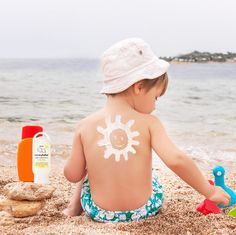
Protecting Infant from Sun
Protecting infants from the sun is crucial for their health and well-being. Babies have delicate skin that’s much more susceptible to sun damage than adult skin, making proper sun protection essential from the earliest days of life.
The first and most important rule is to keep babies under 6 months old out of direct sunlight altogether. Their skin contains very little melanin, the pigment that provides some natural sun protection, making them highly vulnerable to sunburn and long-term skin damage.
For babies older than 6 months, limited sun exposure is acceptable, but precautions are still necessary. When outdoors, dress your infant in lightweight, loose-fitting clothing that covers arms and legs. Opt for tightly woven fabrics for better sun protection. A wide-brimmed hat or bonnet is essential to shield the face, neck, and ears.
Sunglasses are another important accessory. Look for pairs that block 99-100% of both UVA and UVB rays to protect your baby’s sensitive eyes. Wrap-around styles can provide additional protection.
When it comes to sunscreen, the American Academy of Pediatrics now says that sunscreen use on small areas of the body is safe for babies under 6 months if adequate clothing and shade are not available. For older babies, apply a broad-spectrum, water-resistant sunscreen with an SPF of at least 30 to all exposed skin. Reapply every two hours or after swimming or excessive sweating.
Timing is also crucial. Try to avoid outdoor activities during peak sun hours, typically between 10 a.m. and 4 p.m. when the sun’s rays are strongest. If you must be out during these times, seek shade under trees, umbrellas, or canopies.
For car rides, consider using UV-blocking film on the windows or removable mesh window shields. Regular car windows don’t block all harmful UV rays.
Remember that clouds don’t block UV rays, so sun protection is necessary even on overcast days. Reflective surfaces like water, sand, and snow can intensify UV exposure, so be extra cautious in these environments.
Hydration is another important aspect of sun protection. Babies can quickly become dehydrated in hot weather, so offer frequent feedings if breastfeeding, or water if your baby is old enough.
By implementing these protective measures, parents can significantly reduce their infant’s risk of sunburn and long-term skin damage, setting the stage for a lifetime of healthy sun habits.




